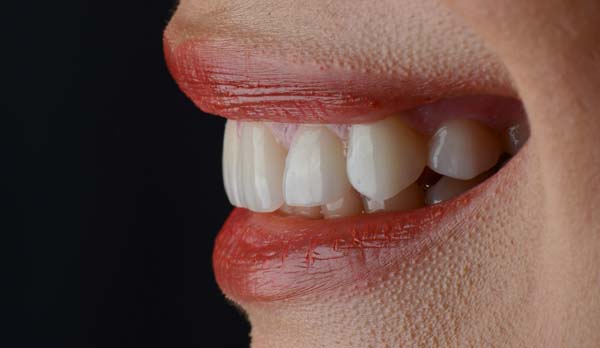What Are Dental Sealants for Teeth?

Dental sealants are a popular general dentistry procedure that many individuals consider to protect their teeth. Both children and adults can benefit from sealants as there are many associated advantages. The placement is very easy and pain-free, which is advantageous for patients of all ages. This fact is a great reason to find out more about the procedure. Keep reading to learn more!
The basics of dental sealants
Below is an overview of dental sealants, including what they are, how they work, and why they are used. When considering preventive and protective dentistry measures, it can be worth reviewing the following information.
Dental sealants defined
Dental sealants are extremely thin coatings that are painted directly onto teeth. The coating is plastic-based and it is clear, which means it can be impossible to notice. Typically, dental sealants are placed on back teeth that are used for chewing and grinding food. The coating is designed to fit perfectly in and over the grooves and fissures of the back teeth.
The procedure
A dental sealant procedure is very simple. The general dentist will start by coating the teeth with the plastic material. A brush-like instrument will be used, which does not inflict any pain or discomfort. After painting the coating on, a curing light will be used, which helps the material to set and harden onto the tooth. Once complete, the general dentist may reapply to ensure the entire tooth was covered. The entire procedure takes less than an hour, and there is no pain involved. Some individuals experience slight sensitivity afterward, but it should not last for more than 48 hours.
Why are they used?
Dental sealants are used to prevent decay. Additionally, they can protect teeth that are prone to bacterial buildup, such as molars or premolars. Molars and premolars are responsible for grinding and breaking up food during the eating process, and their grooves make them susceptible to buildup, thus resulting in decay or infection.
General dentists recommend dental sealants to be placed in children and adolescents, as they are the most prone to cavities. Younger-aged individuals are not always keen on practicing the best oral hygiene, and their diets tend to consist more of acidic and sugary items. However, if adults practice poor oral hygiene or are more prone to tooth decay, a general dentist may recommend dental sealants for them too.
Benefits of dental sealants
Just like with other preventive dentistry measures, dental sealants have a number of benefits, including the following:
- Protective against damage
- Preventive in the sense that cavities are less likely to occur
- Discreet due to the clear color
- Reduced risk of oral infection
- Enamel strengthening
- Lower chances of a break
As each individual is different, there may be patient-specific benefits, which can be identified by a general dentist during an evaluation.
What else to know
When it comes to dental sealants, it is important to know that they can be re-applied! Unlike other dental procedures, sealants do not require an in-depth appointment or customized parts as is the case with root canals or dental crown placement procedures. Because sealants are liquid-based, the procedure is simple and can be done on a routine basis to ensure that the teeth remain protected.
It is also good to know that dental sealants are geared more towards the protection of molar teeth, as stated earlier. The molars are responsible for chewing food, which makes them the most susceptible to cavity formation. Of course, the front teeth do come in contact with foods and beverages too; however, applying dental sealants to them would not do much in terms of protection.
While there may be a concern for protecting the front teeth and taking preventive measures, dentists tend to recommend different treatments for that. For example, fluoride applications can be done on all of the teeth, which is a preventive measure that helps to keep the teeth hard and mineralized. Fluoride can be applied twice a year or every six months during a routine check-up appointment. In some cases, it may be advised to undergo it more frequently.
Find out more about dental sealants
When considering dental sealants, it can be helpful to undergo a consultation with a general dentist. The consultation can help identify goals and needs that can then be used to determine the appropriate course of action, which may include dental sealants. Reach out today to learn more or to get started with a consultation appointment.
Request an appointment here: https://www.perfectchoicedental.com or call Perfect Choice Dental P.C. - Brian Overmyer, D.D.S. at (815) 477-3700 for an appointment in our Crystal Lake office.
Check out what others are saying about our dental services on Yelp: Dental Sealants in Crystal Lake, IL.
Recent Posts
Dental sealants are an excellent preventive treatment to protect the teeth against decay. The dentist will recommend the treatment if patient is particularly prone to cavities or if the child is still learning to take care of their teeth. This article covers the functions of dental sealants as a preventative treatment.Dental sealants are plastic-like coating…
The dentist may have mentioned something about getting dental sealants as a preventive treatment for your kids. This preventive treatment stops tooth decay, but how does it work? Continue reading to learn about dental sealant treatment and how it works to protect teeth.In society today, particularly in the United States, there are varieties of sugary…
Preventive dentistry is a branch of dentistry that focuses on protecting your mouth against common dental issues like tooth decay and gum disease. It include simple things that you can do independently, like practicing oral hygiene, and procedures performed by dentists, like dental cleanings.Taking good care of your mouth makes you less likely to develop…
Preventative dentistry is a branch that focuses primarily on keeping dental issues at bay. Preventing dental issues is cheaper than treating them, and you do not have to deal with the pain and discomfort that comes with oral problems when you stop them from developing in the first place.Preventive dentistry starts with educating patients about…


